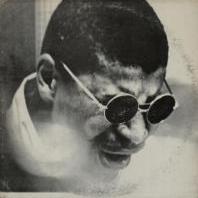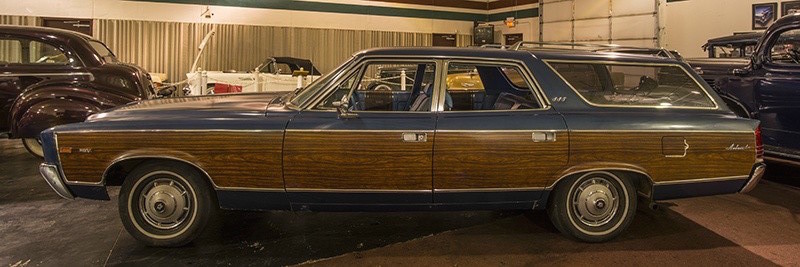-
Posts
5,203 -
Joined
-
Last visited
Content Type
Profiles
Forums
Events
Blogs
Everything posted by Late
-
Here I thought I was going to read about this album: :rsly:
-
Those covers need captions! Except maybe this one: Priceless. Now, what about worst jazz album covers? I nominate this one: The Penguin Guide refers to the original cover of Paul Bley's Touching as having "one of the most unpleasant covers in the history of recorded music." Who can find this? (Unrelated side note: When will Dusty Groove ever stop referring to albums as "bits"? Maybe they need a taste of Ben Wallace: )
-
I'll be getting this one eventually, but wanted to hear what you guys thought ... especially about the second set of the Reflectativity concert! Reviews?
-

FS: jazz, blues, country, rock, classical CDs
Late replied to J.A.W.'s topic in Offering and Looking For...
Someone should snag the Kowald title. Penguin gives this one a crown, and I think they're spot-on in that assessment. Great, wild solo bass performance. -
I know about depletion, or will, right after my Tanno order comes in. Oh so bitter sweet.
-
I don't own Solodrumming but the sound samples are pretty enticing. Here it is for $8.50. Nyess!
-
Hi All, I'm looking for a copy of hatART 6003: Any leads much appreciated. Thanks! Late
-

FT: My JRVG(s) for your TOCJ(s) (or Conns)
Late replied to Peter Johnson's topic in Offering and Looking For...
Sent an e-mail re. Parlan. -
Do tapes of Ornette with Dizzy exist? Can't remember the photographer, but there's a relatively famous picture of them together on the bandstand playing.
-
John, if you already like Tsahar's playing, you'll especially like those two trio recordings. The Hollow World is good too, but takes a little more getting used to. In some ways, it's like a modern (not duplicate, but extension of) Ascension, though notably without bass and piano. _______________________ For some reason, I tend to explore new music by label. Recently, I've been interested in Rastascan, but, apart from Arcana Major, don't know anything from this label's output. Any suggestions, good links? Anyone have Gebbia's People in Motion?
-
On the Tsahar tip, I'd recommend Ein Sof (trio with Parker and Ibarra), Deals, Ideas, and Ideals (trio with Kowald and Ali), and The Hollow World (7 horns + drums). The trio set with Kowald is probably the most attention-grabbing, but all are worthwhile. The only Tsahar I have that I probably wouldn't recommend is his solo Ayn-le Any. Not a bad disc really, but there are so many other solo horn outings that I'd reach for first.
-
A heads-up for any fans of Guillermo Gregorio. This hatART title is still available from Cadence ($11), and is considerably more interesting than Background Music. Spun it this morning. Not a disc with a lot of "fire" to it, but engaging nonetheless.
-
Excellent pick! Would love to hear Shorter with Cyrille behind him. Rollins, Ware & Elvin in the 60's would also truly be a Dream Team. On that font, I'd like to hear Rollins, Albert Mangelsdorff, and Elvin Jones around this time as well, with Albert shifting between "bass lines" and soloing. (Though we know that Newk doesn't let his trombone players solo that much.)
-
Another vote for this album's version of "Lush Life" — it's how I learned the lyrics to this song. One to spin with a snifter of cognac, when those (snifter, cognac) are available. Along the same lines, check out Hartman on Henry Mancini's "Charade" from I Just Dropped By to Say Hello. Another finely rendered and darkly-tinged ballad, with excellent accompaniment by Kenny Burrell.
-
Bev, Coe sings on "Good Night Vienna," the last track on An Affair with Strauss. He doesn't embarrass himself, but he's certainly no singer — and I think he's aware of this while he's singing. (I would have liked to have heard a Lotte Lenya-esque singer try this one instead.) Coe arranged the standard for the band, and it's a short, wryly humorous outing. The tune itself is sentimentally sweet (in a good way), and Koglmann, perhaps wisely, placed the track at the disc's end. A few more words about Coe, who has risen dramatically in my list of favorite reed players. He's perhaps the only tenor player I've ever heard who can — as I hear it — combine some of the essential stylistic devices of both Wayne Shorter and Sonny Rollins, two tenor players that, to me, are near opposites. With a tone that is sometimes reminiscent of Newk on Way Out West, Coe reaches the "color" tones of a chord a la Shorter (e.g. on Miles Davis's "Circle"), and the result is (especially for a former horn player) a marvel. In the end, however, Coe is Coe, and I think it's a shame that American listeners probably don't know his work (outside of Pink Panther fame) that well. For better or worse, I'm becoming more and more disillusioned with young American tenor players. As a result, perhaps, Tony Coe and other European players (like Roman Schwaller) are increasingly filling my listening time.
-
Hi All, I sent off six PM's to board members, and I guess they all went through. And, yes, responses received! Thanks. One thing about those two Koglmann recordings (and this will sound like I'm exaggerating, but I promise that I'm not): they are two of the very best-sounding discs in my entire collection. Amazing sonics. What? Yup. Here's what's strange: I believe (just a guess based on close listening) that they were made on analogue equipment first, and then transferred to digital. (The notes don't mention either DDD or ADD.) The result is a surprisingly warm, LP-like recording with a lot of presence and air between the instruments. To me, these Between the Lines recordings come through on, and bridge the gap between, what labels like CIMP and ECM promise: the realness and spontaneity of CIMP, and the crystalline hear-a-pin-drop sonics of ECM. At any rate, I guess my (originally private) enthusiasm has now become a little public. For anyone whose reading this and thinking what the?, I just wanted to give a heads-up on two particular recordings. Franz Koglmann's: Make Believe and An Affair with Strauss If you like Tony Coe, you might love these recordings. All best, Laton
-
Where to Start in Swing, as authored by our own Swinging Swede. I do miss the old days. Time to hang the gloves up for a while and listen more.
-

Favorite new BN release from the last 5 years???
Late replied to Rooster_Ties's topic in Recommendations
Yes, you nailed it there. Show a little emotion Jurek, why doncha? I wonder now how Mr. Ware feels about that Grammy acceptance speech he prepared. Poor lug. -
Just landed a copy of 'Coon Bid'ness on disc this afternoon (-- didn't know it was originally produced by Michael Cuscuna!). I've had this dubbed on cassette for some time, but never come across the cd. Before I spin it, I thought I'd start a Hemphill thread. He seems one of the more important figures of creative improvised music since the early 70's, and also seems to be under-remarked. What do you think of Hemphill's playing? Which albums are favorites? I actually don't have all that many Hemphill albums, but my favorite of them is certainly Blue Boyé, a two-disc set that I wouldn't hesitate to pin with a "crown." Now it's time to go listen for a while ...
-
Also, the name Muggsy Spanier always conjures this image in my head.
-
Just had the name Sharky Bonano jump into my head. Hope I spelled that right.
-

Favorite new BN release from the last 5 years???
Late replied to Rooster_Ties's topic in Recommendations
Sorry, John. Maybe I should have added a ? So, lemme get this straight ... Are you suggesting that Jurek's reviled because he's moonlighting at Dusty Groove? I thought I recognized a similarity! You have to respect, however, that he contained himself — there's no utterance, in the above review, of "Cool Beans!" -
Joe's adaptability to virtually any setting was indeed one of his strong suits. His pairing with Kenny Dorham is still one of my favorite front lines. Interesting, too, that he was on both of Blue Note's chart-topping singles back in the day: "The Sidewinder" and "Song for My Father." Chrome, if you don't have it already, you'll want to check out Alice Coltrane's Ptah, the El Daoud to hear Henderson in yet another setting ... and excelling. A great record (despite the weird cover).
-

Favorite new BN release from the last 5 years???
Late replied to Rooster_Ties's topic in Recommendations
I like 52nd Street Themes. Something comfortable, even cozy, about it. Lovano, in places, reminds me of Sonny Rollins, circa 1963 with his intentional stumbling-type phrasing. Love that. I like the Penguin, too. For some reason, the 3rd edition is my favorite. Keeps in a lot of their better reviews, in my opinion. Poor Thom. Why is he so reviled? He glistens with excitement! -
Perhaps my favorite singular performance of Mat Maneri's (though I certainly haven't heard all his recorded work) is his unaccompanied viola solo "Lattice" from his Trinity disc on ECM. I have to admit, on the other hand, that his duo hat disc with Matthew Shipp left me cold, and I ended up giving it away. Maybe shouldn't have, but ... did it. Nate, the way you feel about Morris is kind of the way I feel about Derek Bailey. I'm still trying to access that guy's music (which of course is much different than Morris's, at least to my ears). I can appreciate Bailey more than enjoy him, and this always disturbs me. Oh well. Rudy (he used to go by Rudy) Mahanthappa used to have a great (or maybe just funny) impression of Albert Ayler when he was at North Texas. I'd yell "Ghosts!" as I walked past his dorm room door, and he'd go into it. Once we drank too much Ernest and Julio Gallo, and played "Feel So Good" walking down the hall. Then he got a lot better and transferred to Berklee, and I pretty much gave up the horn.
_forumlogo.png.a607ef20a6e0c299ab2aa6443aa1f32e.png)
